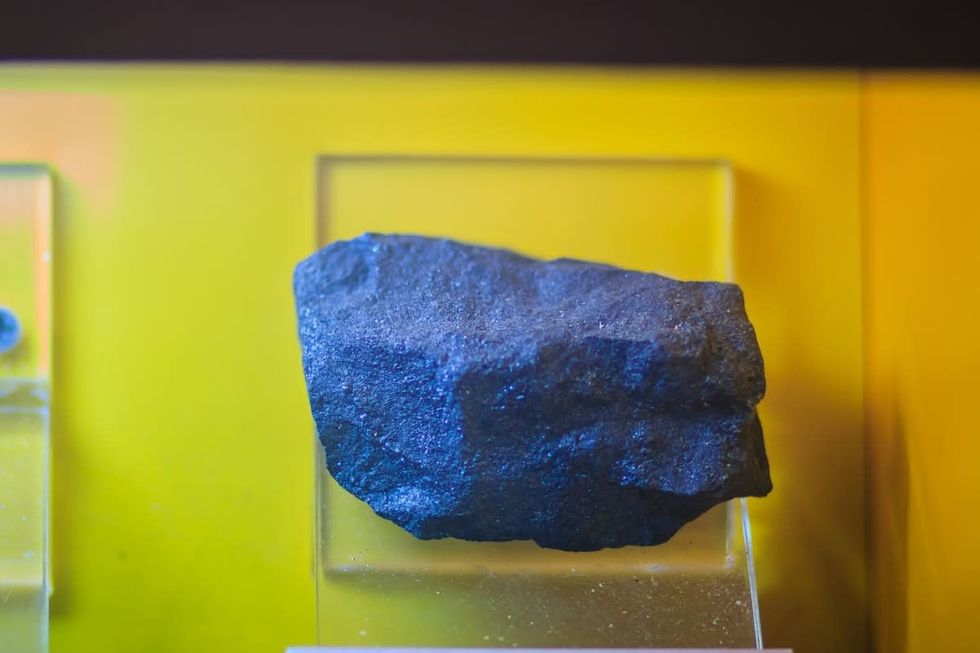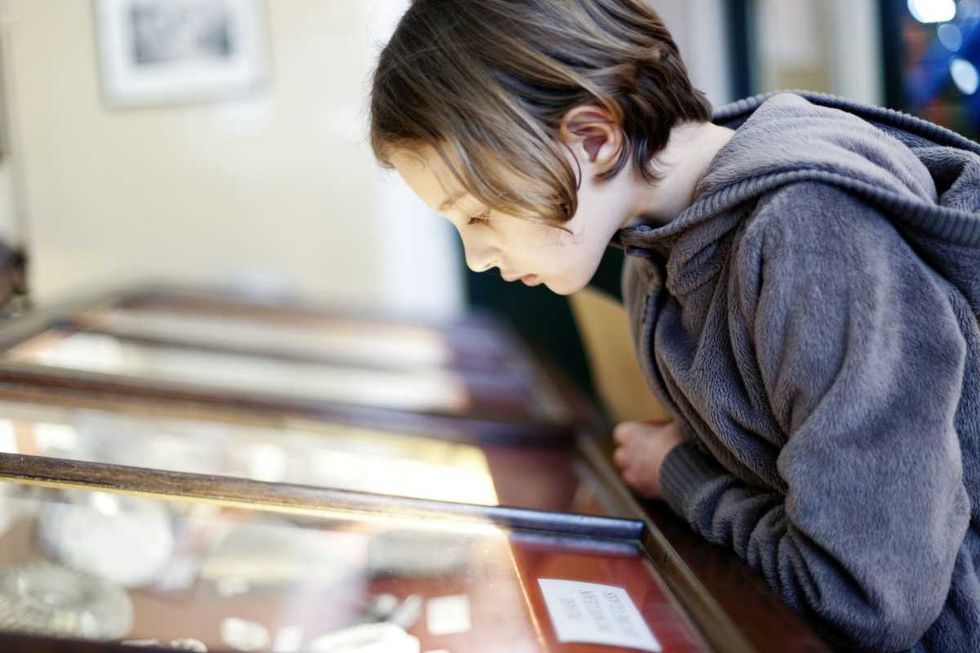On the second floor of Poole Museum, visitors usually come across galleries that display stories of gypsies, travelers, and famous people that shaped the history of the coastal town of Poole in Dorset. In one corner sits a glass cabinet, inside which there is a small rock that isn't an ancient artifact but has a heartwarming backstory dating back to the summer of 2019. The story is printed on a piece of paper and displayed alongside the rock in the glass cabinet, and the museum shared pictures of the stone along with the note in a Facebook post.

In August 2019, the curators of Poole Museum were guiding visitors as usual, just when a young girl by the name of Bethan, walked into the second floor with her mom. After strolling through various galleries and discussing them with her mom, she walked to a museum curator and extended her palm towards them with a little rock in it. It was her most precious rock and she had decided to donate it to the museum. Her only condition was that the rock be put behind the glass and looked after, so everyone could see and enjoy it. The museum staff honored her innocent request and since then the ordinary yet special stone in the glass cabinet has been labeled “Bethan’s Rock.” “Thank you for letting us look after it. It will be treasured,” the museum wrote in the Facebook post.
Encapsulating a little girl’s sentiments and the wonder of childhood, the rock has become a popular attraction among travelers, some of whom visit the museum only to catch a glimpse of it. Meanwhile, people are also praising museum curators for honoring the kid’s request as this small gesture will continue to inspire the girl to seek more adventures, collect rare stones, and explore the world. “This is how you inspire children to learn,” wrote Elliot Rennie, commenting on the rock’s picture on Facebook. Others are saying that it is the “most beautiful rock ever.”

On Reddit where the same pictures were shared by a local, u/Clopidee in the r/mademesmile group, more than 113,000 people upvoted it. u/woolfiend8 commented, “In 200 years, this will be a priceless artifact!” u/destroyeroyer2 said that this exhibit would be much more interesting to the visitors than the regular exhibits, given its emotional value. “It's a close contest between Bethan's Rock and a log boat made from the trunk of a single oak tree that dates back to 295 BC,” u/clopidee replied.

In November 2021, the museum announced on Facebook that Bethan’s rock was becoming an international phenomenon. Encouraged by the overwhelming response, the museum launched a gallery solely showcasing rocks with interesting geological stories. “We can’t match Bethan’s example, but we hope you enjoy finding out more about our sample of Goethite and rock collecting anyway,” the post read. Currently, the museum is closed for renovation and will open sometime at the end of 2024, with fresh galleries displaying shipwrecks and log boats, of course alongside Bethan’s rock.


















 Regular exercise and a balanced diet are cornerstones to aging well.
Regular exercise and a balanced diet are cornerstones to aging well.


 Oral Wegovy pills were approved by the Food and Drug Administration in December 2025 and became available for purchase in the U.S. in January 2026.
Oral Wegovy pills were approved by the Food and Drug Administration in December 2025 and became available for purchase in the U.S. in January 2026. Despite the effectiveness of GLP-1 drugs for weight loss, there is still no replacement for healthy lifestyle patterns, including regular exercise.
Despite the effectiveness of GLP-1 drugs for weight loss, there is still no replacement for healthy lifestyle patterns, including regular exercise.


 What foods would you pick without diet culture telling you what to do?
What foods would you pick without diet culture telling you what to do?  Flexibility can help you adapt to – and enjoy – different food situations.
Flexibility can help you adapt to – and enjoy – different food situations.
 Anxious young woman in the rain.Photo credit
Anxious young woman in the rain.Photo credit  Woman takes notes.Photo credit
Woman takes notes.Photo credit